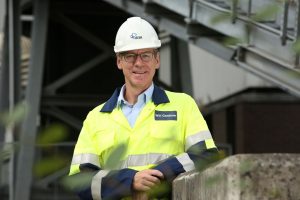Plans lodged to build world’s largest carbon capture project

Drax has submitted plans to build the world’s biggest carbon capture facility at its North Yorkshire power station.
The company intends to invest £2bn in the 2020s in its plans to develop two bioenergy with carbon capture and storage (BECCS) units, creating and supporting thousands of jobs in the North.
Work to build BECCS at Drax could start as soon as 2024 and once operational the two units combined will capture at least eight million tonnes of CO2 per year.
Will Gardiner, Drax Group CEO, said: “Drax’s BECCS project provides the UK with a once in a generation opportunity to kickstart a whole new sector of the economy and lead the world in a vital green technology needed to address the climate crisis.
“Drax aims to invest billions of pounds and create thousands of jobs developing BECCS in the UK, provided that the UK Government has in place policies to support the feasibility and delivery of negative emissions technologies.
“BECCS at Drax will not only permanently remove millions of tonnes of carbon dioxide from the atmosphere every year, but it will also generate the reliable, renewable power this country needs. No other technology can do both.”
The submission of its application for a Development Consent Order (DCO) to the Planning Inspectorate marks a milestone in the project and follows two consultations carried out by Drax, which sought to gain views from the public and key stakeholders on its BECCS plans.
Drax says it plans to source up to 80% of the materials and services it needs to build its BECCS project from British businesses, announcing in April this year that the business was seeking contractors for the project.
It recently revealed a partnership with British Steel to identify opportunities to source the steel to build BECCS from its Scunthorpe and Teesside steelworks.
The news of the new facility follows an announcement by the company earlier in the day that it is working with Japanese shipping company MOL Drybulk to slash emissions and fuel costs associated with shipping biomass by deploying wind power technology on vessels.








